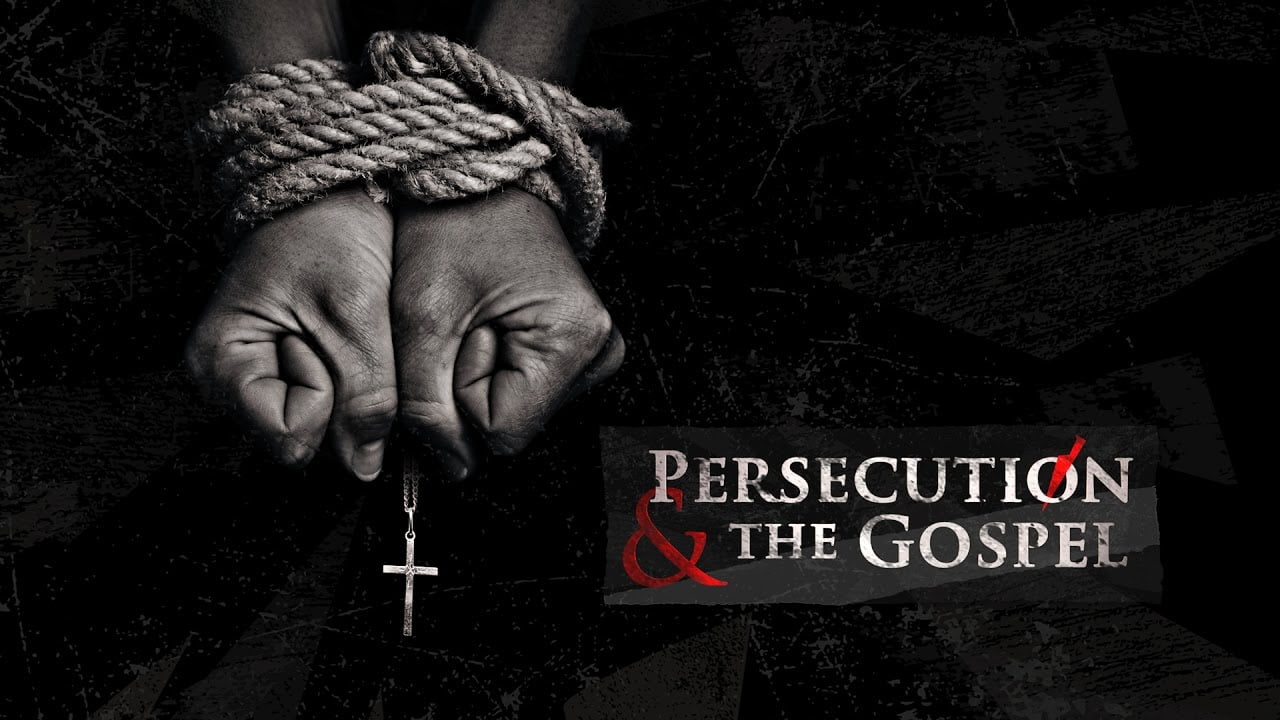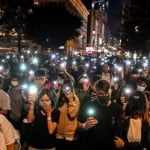South Korean families booted from China for ‘being missionaries.’
The communist Chinese government’s atheistic crackdown on Christianity has shown little tolerance for evangelistic activity from abroad, with one purge deporting more than a dozen South Korean Christian families for the “crime” of “being missionaries.”
“Communist officials decided the Christians’ stay in the country was ‘illegal’ due to their evangelistic work,” The Christian Post reported.
Worship the regime only
For the first time, a Korean missionary opened up about his deportation experience in China, where he was purged as part of the communist government’s “Sinicization” campaign spearheaded by President Xi Jinping to put the Church under the Party’s control.
Deported by Chinese authorities a year ago, he recounted how government officials carried out a coordinated effort to deport hundreds of Korean missionaries to curb Christianity in China and cut down on the number of North Korean defectors.
Part of the current crackdown took place in January 2017, when 13 South Korean families living in China as part of a mission group were kicked out of the country in the wake of their regional leader’s arrival and apprehension in the area – the moment he set foot on Chinese soil.
“All 13 families of the mission team were brought to the police station – many of them were arrested from their homes, and the detainees included children and a senior in her 60s,” International Christian Concern (ICC) reported. “At the station, the security agent showed them the website of their mission group and the members’ blogs with information on donations and supporting churches.”
Severe interrogation tactics caused the blood pressure of the elder Christian member of group to rise to levels where she had to leave for home, and children between the ages of three and 10 were subjected to the all-night investigation.
“The police slapped a charge of ‘being missionaries’ to the 13 families and told them that was why they were investigated by the Chinese authorities,” ICC retold. “The officials also insisted that the families’ stay in China was illegal – given they [we]re missionaries … doing the works that the Chinese government does not want them to do.”
Yet it was not the Chinese who the missionaries were there to minister to.
“Contrary to the police’s claim, the families were mainly teaching [the] Bible to the North Koreans, who regularly visit China with Pyongyang’s permission,” ICC explained. “[Because] their activities were not direct[ed] at proselytizing Chinese citizens, it was not against any Chinese law – according to the leader of the 13 families.”
Their treatment resembled extreme measures taken by the United States government against Japanese Americans as an overblown precaution during World War II, except the South Korean missionaries were kicked out of the country.
“After the all-night investigation, the 13 families were given a week to sell all their assets – including cars and houses – before their deportation,” ICC informed. “The investigation done by the police revealed the list of mission groups and their mission strategies. All of the family members’ passports were confiscated during this period, [and] on January 20, 2017 – the deadline of their stay – all 13 families were deported from China.”
Even though the outreach’s head missionary evaded capture at the time of the raid because he was out of town, his communications were tapped, as he later learned from Samsung that his cell phone was wired when he took it in for service after frequently losing connection. A year after he realized his phone was tapped, his freedom ended.
“[A]round the end of May [2018], the Chinese authorities contacted the wife of the head missionary in Dandong for investigation, [and] in the probe, they told her that the lists of the missionaries in different regions were sent from Beijing,” ICC recounted. “She was asked what church she had attended in South Korea and why she did not register the Korean-Chinese church she went to in Dandong, [and] they even knew about the past of the missionary and his wife – [that] she used to teach at a farmer’s school in South Korea.”
She was soon forced to sign a consent form that made her return to South Korea “voluntarily” – giving her only half the time she needed, a mere two weeks – to wrap up everything at her school and leave the country with her head missionary husband.
This was just the beginning of the new set of crackdowns on believers.
“Soon after, all the churches ministered by Korean-Chinese in Dandong, including the biggest church in Dandong where a Korean-Chinese pastor was ministering around 200 members, were shut down,” the Christian organization serving the persecuted Church relayed. “One of the pastors’ wives made claims against the forced closure of the churches, and she was brought to the security bureau and sent to prison in Shenyang.”
It was later discovered that Chinese authorities had been spying on the missionaries for years, amassing “evidence” to “justify” their imminent deportation.
“Later, the mission group’s contact with local Chinese found out that the security authorities of Yanji had been preparing to arrest the missionaries and end their activities since 2014,” ICC added. “The Chinese government hacked the emails and registered phone calls between the members of the group.”
These practices are seen as Xi’s power grab over the region.
“Such act of tapping the communication is presumed to be an attempt of Xi Jinping’s government to demonstrate its power in the border area, where they see the admission of North Korean defectors as the root of the instability in the region,” ICC noted.
Ying Fuk-tsang, director of the Chinese University of Hong Kong Divinity School, says things will only get worse.
“[There will be more deportations of missionaries as] Chinese authorities tighten their grip over religious affairs to limit foreign infiltration,” Fuk-tsang foretold, according to the South China Morning Post (SCMP), noting that growing numbers of Chinese Protestants – particularly university students – are a growing concern for the government.
“China has never welcomed foreign missionaries … and it has become more visible – the Chinese authorities limiting the activities of missionaries by cancelling their visas or restricting visa extensions, [as long-term missions are replaced by more short-term and underground ones].”
Despite the escalated persecution, the number of Christians in China has greatly increased in recent decades.
“There were more than 38 million Protestants in the country in 2017, up from 10 million in 1997,” the SCMP reported from official data.




